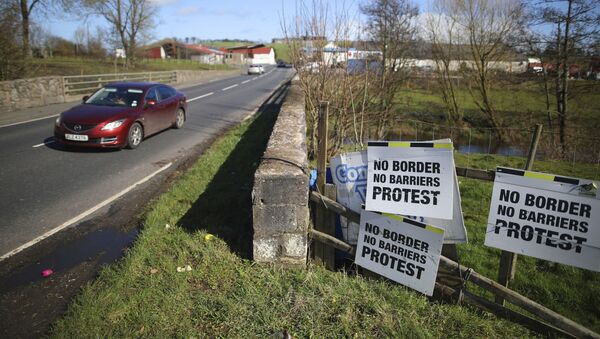Sputnik discissed the issue with Brexit Party organizer Pete Durnell.
Sputnik: Will the EU agree to negotiate a new Brexit deal with Boris Johnson?
Pete Durnell: Boris’s current tour of Europe is largely a PR exercise, it’s about blame shifting really, should we end up without a deal on November the 1st. No deal isn’t ideal, I don’t think anyone would actually say that it’s ideal; but it’s a hell of a lot better than Theresa May’s concession treaty, where we’d slowly have our national sovereignty stripped away from us.
I don’t think there will be the time for all 28 EU nations to agree a new deal, and to pass it through their parliaments prior to October the 31st, even if all of them agreed to try, and let’s be honest; it looks like France and Macron won’t even want to try, so I would say that the EU won’t negotiate because there simply won’t be the will or the time.
Sputnik: Is the Irish backstop as unacceptable as Boris Johnson claims? What alternatives could there be?
Pete Durnell: I personally think the whole withdrawal deal is unacceptable, not just the backstop. Anyone who has read even a summary of it, how they could vote for it or even think about that is just a mystery to me; it’s basically designed to keep us under full EU control pretty much indefinitely, potentially even to 2099.
It has one clear objective, which is to ensure that we are so shackled, so hamstrung that we cannot possibly succeed once we are technically out of the EU, the consequence of that being that we’ll end up begging to come back because we couldn’t succeed.
In terms of the border between Northern Ireland and Ireland and alternatives to the backstop; there’s already a soft border in place currently, we have different VAT rates, a different currency, so it’s about a technological solution that have been proposed and been dismissed, but on my side of the argument I actually believe that technology could solve the problem.
It would simply be an extension to the existing soft border, so I believe firmly that the border issue has basically been used as a tool to block Brexit.
Sputnik: Would Jeremy Corbyn or a so called national unity coalition pose a credible challenge to Johnson if a snap election took place?
Pete Durnell: How anyone could install Corbyn and think that it was unifying is a mystery to me. Labour are polling in the low twenties, and he has just over half of his own membership’s approval, so there’s not much unifying about that, basically.
If a snap election is called or forced; Boris’s problem, assuming he hasn’t delivered Brexit, then he’s going to have the Brexit Party on his case big time, and we are going to put up candidates in all six hundred and fifty constituencies.
Boris is going to be faced with a very simple choice, which is; do a deal with the Brexit Party, and the polls pretty much suggest that being in a coalition with a good-sized majority, probably a large majority with the Brexit Party being in government, or the other choice will be don’t do the deal and be in opposition.
The views and opinions expressed by the speaker do not necessarily reflect those of Sputnik.



